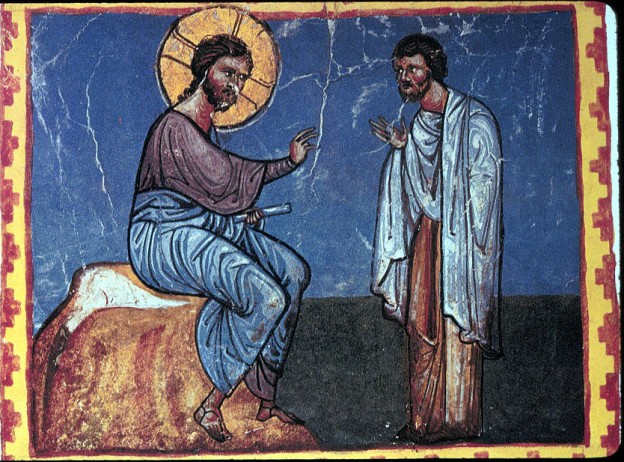A young, rich “ruler” approached Jesus and asked a difficult question: “Teacher, what good thing must I do to get eternal life?”
As he often did, Jesus answered the young man with a question of his own: “Why do you ask me about what is good? There is only One who is good. If you want to enter life, keep the commandments.”
This young man, who had it all, wanted even more but without sacrifice. He had wealth, position and youth. Here he asked to be rewarded with life eternal by doing a good thing, like being a good neighbor. Jesus reminded him of the commandments that relate to how people should treat one another; He does not mention the four commandments that refer to God. To the young man, being a good person simply meant good behavior.
 If this sounds familiar, it is. Our contemporary culture has seemingly adopted the idea that being a “good guy” is enough. Behind this belief is the reality that wealth, health and position is the true god for our lives.
If this sounds familiar, it is. Our contemporary culture has seemingly adopted the idea that being a “good guy” is enough. Behind this belief is the reality that wealth, health and position is the true god for our lives.
In the book of Ecclesiastes, Solomon tells us that God “has set eternity in the human heart.” The longing of the rich young ruler was for something beyond the temporal, but Jesus then challenged him: “If you want to be perfect, go, sell your possessions and give to the poor, and you will have treasure in heaven. Then come, follow me.”
The young man now had a dilemma. He had to choose between giving up all the good things he had for something better that he had not yet obtained. He may have been able to hide the pain in his afflicted heart, but unlike our contemporary soothsayers, Jesus does not let him (or us) off the hook.
Time and again, I have heard people ask, “but do I really have to give up everything I have in this life to follow Jesus?” Jesus did not force the young man to do anything. He merely said, if you want to have the promise of eternal life, if you prize God more than all the things you might have here and now, put everything aside and “Then come, follow me.”
Nobody would say such a choice is easy; it is not, particularly when our circumstances are filled with so many good things.
![]() This biblical account of the young man’s encounter with Jesus did not have the happy ending we might expect because the young man would not give up the things he had for the thing he longed for, and so “he went away sad.” Jesus puts it this way in the Parable of the Sower: “Still others, like seed sown among thorns, hear the word, but the worries of this life, the deceitfulness of wealth and the desires for other things come in and choke the word, making it unfruitful.”
This biblical account of the young man’s encounter with Jesus did not have the happy ending we might expect because the young man would not give up the things he had for the thing he longed for, and so “he went away sad.” Jesus puts it this way in the Parable of the Sower: “Still others, like seed sown among thorns, hear the word, but the worries of this life, the deceitfulness of wealth and the desires for other things come in and choke the word, making it unfruitful.”
(The September 14 Getting to Know Jesus podcast is about the story of Jesus and The Rich Young Man.)
